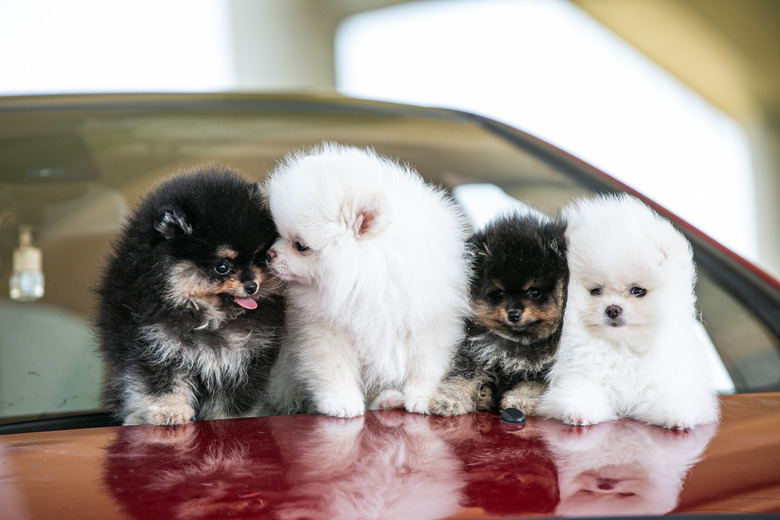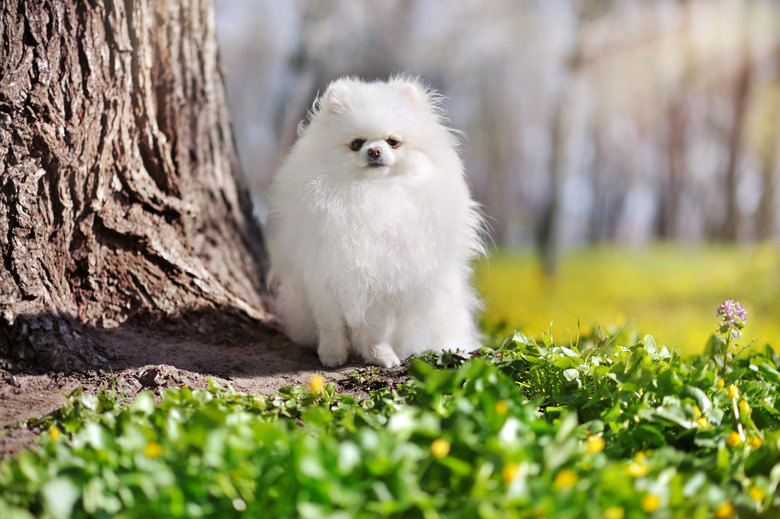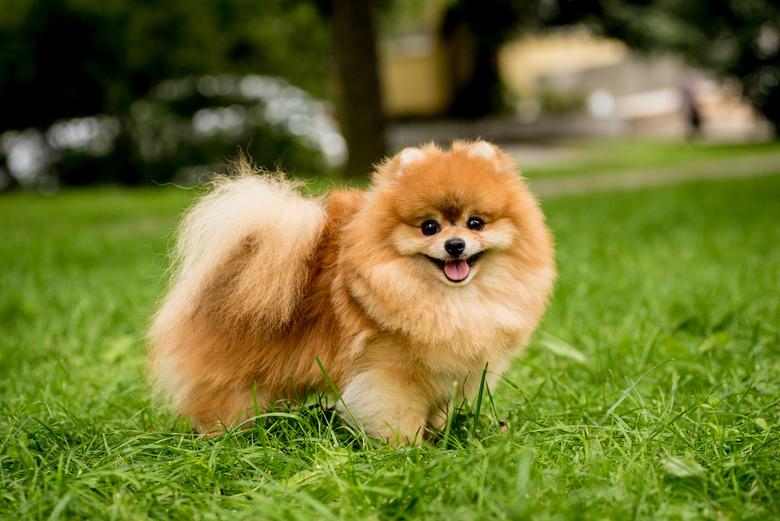How To Make My Pomeranian's Hair Fluffy
The Pomeranian is one of the smallest breeds in the spitz family. Originating from Germany, these compact companions are known for their small size, their vivacious personality, and their unmistakably fluffy, voluminous coat that rivals that of big, fluffy dog breeds. Known as a double coat, the Pomeranian's fur is made up of two types of fur: rougher, longer hairs that make up the guard hairs and the softer, down-like fur called the undercoat. Together, they make for one plush, generous coat.
Proper care of the double coat is required to keep your Pom looking fluffy, but there's a lot more to keeping that coat lush besides a good brushing.
Pomeranians aren't fluffy during the uglies
Pomeranians aren't fluffy during the uglies
At around 6 months old, Pomeranians go through adolescence. During this time, they go through something called the "puppy uglies." The puppy uglies is when a Pom's fur looks sparse as she begins shedding her puppy hairs, and her adult hairs start growing in. If this is the case, you will have to be patient and let the adult hairs grow in. Pomeranians become adults at around a year, but it can sometimes take longer for their fur to grow out completely.
Some Pomeranians are fluffier than others
Some Pomeranians are fluffier than others
Each dog is different, and while a plush coat is a part of the breed's standard, how fluffy your Pom's coat may be might differ. Because not all Pomeranians are bred to the breed standard, depending on where you got your Pom, you may end up with a dog that isn't as fluffy.
If you own a Pomeranian mix, you may find that the coat is not as thick or voluminous compared to a purebred Pomeranian's coat. Depending on your dog's unique mix, it can result in your Pomeranian mix having a smoother coat. It may not be fluffy, but it will be easier to care for.
Groom your fluffy Pomeranian regularly
Groom your fluffy Pomeranian regularly
The Pomeranian (and any Pomeranian-like dogs) needs to be groomed regularly. Without regular baths and brushings, your Pomeranian's fur will get matted and dirty. When this happens, it can make your Pom's fur lose its volume.
Once a month, give your Pomeranian a bath. Using a pin brush and slicker brush, part your dog's fur (back to front against the direction that the hairs naturally lie) and carefully brush out any mats or dead hair. Using a forced air dryer can help remove dead fur more quickly while achieving volume at the same time. Human hair dryers are not recommended for drying your dog. Since human dryers use heat, it can harm your dog's skin and fur.
Shaving or giving a teddy bear cut
Shaving or giving a teddy bear cut
Because Pomeranian fur is not meant to be cut or shaved, doing so can cause permanent damage to the follicles of your dog's hair. Pomeranians can be given light trims, but they should never be shaved or have their fur cut very short.
Groomers most often will tidy your Pomeranian's ears and paws, and if requested, they can perform a sanitary cut. These are the only trimming-related touches that you should be requesting when you go to a dog groomer.
Health issues can affect fluffiness
Health issues can affect fluffiness
Sometimes, simple things like dry skin due to the weather or an improper diet can cause your dog to have less fur. Other times, it can be more serious, such as allergies or other skin conditions that cause irritation.
In rare cases, some Pomeranians can develop alopecia X, a condition that affects Pomeranians and other Nordic or spitz breeds. Also known as black skin disease, there is no cure that is guaranteed to work. If you suspect your Pomeranian is losing her fur due to a health issue, consult your veterinarian as soon as possible.
Supplements can encourage hair growth
Supplements can encourage hair growth
Making sure your dog has a healthy diet can help encourage hair growth and overall hair health. Besides making sure all your dog's nutritional needs are met, supplementing a Pomeranian's diet with fish oil can help improve coat and skin health. Omega fatty acids have been linked to improving skin and coat health. Besides the skin and coat benefits, it can also improve cognitive abilities and heart health, which makes it extra beneficial.
If you choose to add fish oil as a supplement, make sure to follow the recommended amount on the bottle or container.
References
- Animal Medical Center of Chicago: Fish Oil for Dogs and Cats: Six Benefits
- American Kennel Club: Pomeranian
- Pomeranian HQ: Pomeranian Puppy Uglies
- Pomeranian HQ: Shaved Pomeranian or Clipped Pomeranian Information
- Hill's Pet: Why is My Dog Losing Hair?
- Veterinary Partner: Alopecia X is a Pattern of Baldness
- Today's Veterinary Practice: Role of Dietary Fatty Acids in Dogs & Cats


